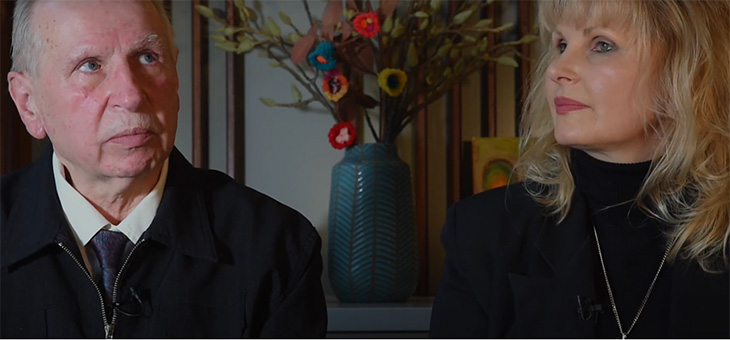A 2018 Cancer Council report revealed that the number of Australians living with or beyond cancer is expected to increase by a staggering 72 per cent in the next 20 years.
The report shows that the increase in the number of Australians living with and surviving cancer will lead to almost 1.9 million Australians living with a personal history of cancer by 2040. That’s an increase from 1 in 22 Australians today, to 1 in 18 in the next 20 years.
Experts say this rise in the number of Australians living with or beyond cancer can be attributed to the country’s growing and ageing population, as well as increasing cancer survival rates thanks to better prevention, early detection and research.
Read more: Cancer symptoms you should never ignore, according to specialists
One in two older Australians have cancer by the time they are 85, yet research shows they have less access than younger people to acute treatments, information on side-effects, and opportunities to take part in clinical trials.
Now, a new resource is empowering older Australians living with cancer to discuss and prioritise their needs when making decisions about treatment and care.
The support
University of Melbourne chair in cancer nursing and project lead Professor Mei Krishnasamy said the OlderCan website included information and templates to help older adults share important personal information with their cancer team, GP and family.
Prof. Krishnasamy said postcards alerting people to the resources would be available in medical waiting rooms and cancer centres, and the main resource was designed to be printed for those without computers.
“We all have different needs and priorities. Some people want to try all treatments available, and others may not want treatment that impacts their quality of life,” she adds.
“Whatever their preference, people need to feel empowered to have open and honest conversations with their cancer teams to facilitate tailored decision making.
“Individuals can use our ‘This is me’ form to start discussions with their cancer team on their physical, emotional, and social needs, and what they value for their quality of life.”
Prof. Krishnasamy hopes the novel resource will prompt discussions to change the trajectory of care for these patients, setting them on a person-centred pathway.
“By providing cancer teams with insights into a person’s priorities, the OlderCan resources will enable older patients to achieve treatment aligned with their preferences and goals,” says Prof. Krishnasamy.
Cancer treatments often have side-effects that can affect quality of life. Understanding what is important to patients can initiate discussions on how these side-effects may affect them, and whether acute treatment is the best option.
The shock of a diagnosis
The most common cancers in Australia (excluding non-melanoma skin cancer) are prostate, breast, colorectal (bowel), melanoma and lung cancer.
Read more: Monash research finds heart drug can reduce breast cancer progression
These five cancers account for about 60 per cent of all cancers diagnosed in Australia and each come with their own risks and emotions.
People can feel a whole range of emotions after a cancer diagnosis, including:
- anger
- sadness
- uncertainty
- fear
- guilt
- frustration
- loneliness
- isolation
- resentment
- grief
They might even find that their mood changes from one moment to the next. Health experts have identified that sometimes older people find it hard to talk about how they are feeling and their emotions; that talking about their emotional wellbeing and mental health did not come easily to them.
Oldercan has videos showing older people talking about their own experiences with cancer and what helped them cope in the day-to-day.
WeCan also has links to services and support for emotional wellbeing.
The development
Marilyn Dolling, 78, was diagnosed with bowel cancer 25 years ago. She also cared for her husband Roger, who was diagnosed with leukaemia in 2004 and passed away in 2020.
Ms Dolling says that both diagnoses left her feeling overwhelmed, vulnerable, and in disbelief. She felt a loss of identity, with her diagnosis taking over her sense of self. Her experiences left her feeling out of control, anxious, and uncertain, and she experienced a loss of dignity.
However, she has also learnt much about coping, and used her experience as a patient and carer to inform the development of OlderCan. She is also helping her older peers learn to use the relevant technology.
Read more: Exercise proven to aid cancer patients
“OlderCan provides people over 65 years old with resources to share what is important to us with our cancer teams, so that the care we receive can help us to achieve our plans and dreams,” says Ms Dolling.
“Discovering ways to change your mindset, communicate with each other and clinicians brought some purpose to life.”
“It is important to discover your priorities in a world of changed plans, dreams and hopes, and to make plans with the ability to change them, rather than not making plans at all – including personal or advanced care plans,” she adds.
Have you had any personal experience with cancer? Were you aware of the resources on Oldercan?
If you enjoy our content, don’t keep it to yourself. Share our free eNews with your friends and encourage them to sign up.

